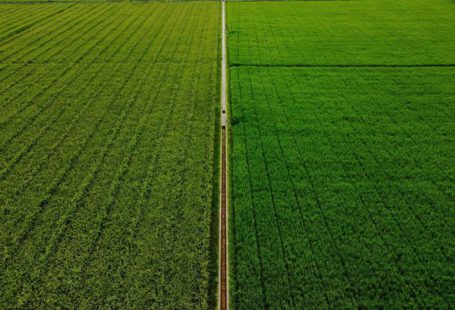Hydroponics has emerged as a game-changer in the realm of sustainable agriculture, revolutionizing the way we grow crops by utilizing water-based nutrient solutions instead of soil. This innovative method offers numerous benefits that not only promote more efficient and environmentally friendly farming practices but also address key challenges faced by traditional agriculture. Let’s delve into the role of hydroponics in promoting sustainable agriculture.
### Enhancing Water Efficiency
One of the most significant advantages of hydroponics is its ability to optimize water usage. Traditional farming methods often result in significant water wastage due to runoff and evaporation, leading to water scarcity issues in many regions. Hydroponic systems, on the other hand, allow for precise control over water delivery directly to the plant roots, minimizing waste and maximizing efficiency. By using up to 90% less water than conventional agriculture, hydroponics plays a vital role in conserving this precious resource and promoting sustainability in farming practices.
### Maximizing Space Utilization
Another key benefit of hydroponics is its space-saving design, making it ideal for urban and indoor farming. By eliminating the need for soil, hydroponic systems can be set up vertically or in compact configurations, enabling farmers to grow crops in limited spaces such as warehouses, rooftops, or even shipping containers. This vertical farming concept not only maximizes land usage but also reduces transportation distances, thereby lowering the carbon footprint associated with food production and distribution.
### Minimizing Chemical Inputs
Conventional agriculture often relies heavily on chemical fertilizers and pesticides to boost crop yields and combat pests and diseases. However, the indiscriminate use of these chemicals can have detrimental effects on the environment, soil health, and human health. Hydroponic systems offer a more sustainable approach by providing plants with precisely calibrated nutrient solutions, reducing the need for synthetic fertilizers and pesticides. This controlled environment minimizes chemical inputs, creating a safer and more eco-friendly growing system that promotes long-term agricultural sustainability.
### Improving Crop Quality and Yield
Hydroponics provides an optimal growing environment that allows for better control over key growth factors such as light, temperature, and nutrients. By fine-tuning these variables, farmers can ensure that plants receive the ideal conditions for growth, resulting in higher-quality crops with increased nutritional value. Additionally, the controlled nature of hydroponic systems minimizes risks associated with adverse weather conditions, pests, and diseases, leading to more consistent yields throughout the year. This improved crop quality and yield not only benefit farmers economically but also contribute to food security and stability in the face of changing climate patterns.
### Fostering Innovation and Technology
The adoption of hydroponics in agriculture has spurred a wave of innovation and technological advancements in the farming industry. From automated monitoring systems to advanced nutrient delivery mechanisms, hydroponic farming has paved the way for the development of cutting-edge solutions that enhance efficiency, productivity, and sustainability. The integration of smart technologies, data analytics, and renewable energy sources further strengthens the sustainability credentials of hydroponic farming, positioning it as a frontrunner in the quest for more environmentally conscious agricultural practices.
### Cultivating a Greener Future
In conclusion, the role of hydroponics in promoting sustainable agriculture cannot be overstated. By offering water-efficient, space-saving, and chemical-free growing solutions, hydroponic systems address key challenges faced by traditional farming methods while fostering innovation and technological progress in the agricultural sector. As we strive to build a greener and more sustainable future, embracing hydroponics as a viable alternative to conventional agriculture can play a pivotal role in ensuring food security, environmental stewardship, and economic prosperity for generations to come.





